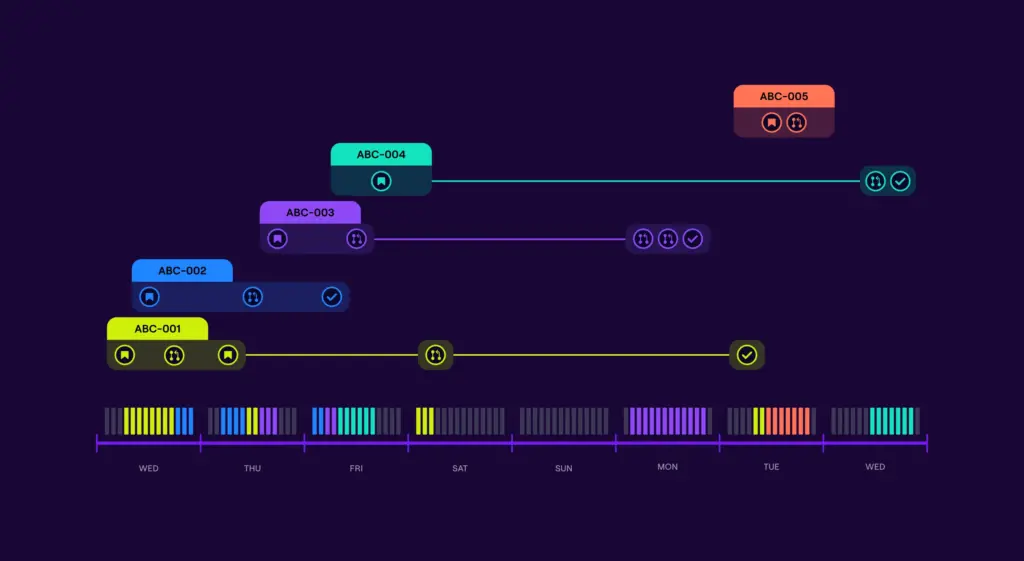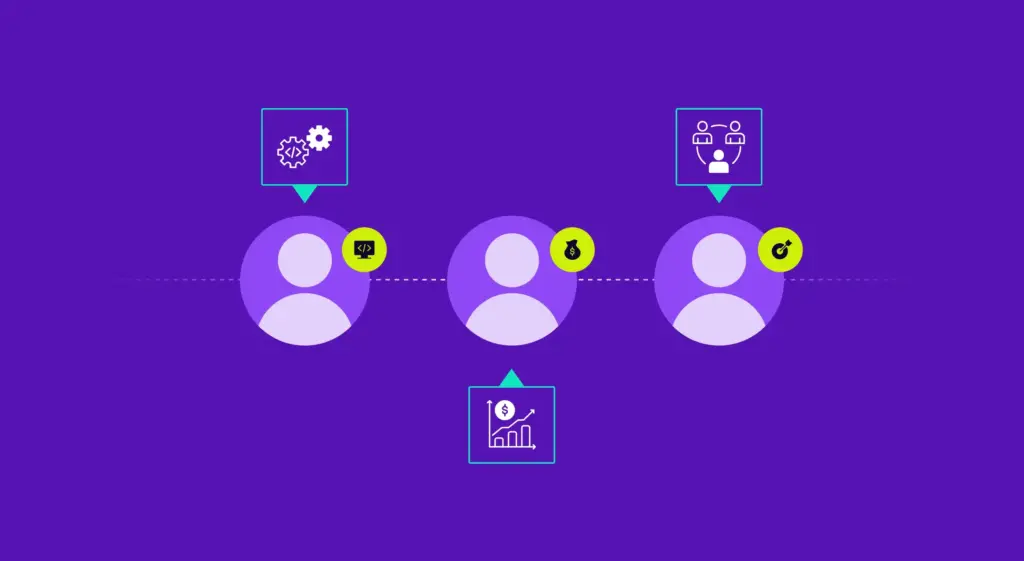The 2023 State of Engineering Management Report found that engineering operations were significantly impacted by the economic climate. Recent research shows that engineering metrics trended downward across tempo, throughput, collaboration, and planning in 2022, and that leaders are now prioritizing efficiency and business alignment in 2023. We can expect engineering leadership to pivot from the growth mindset of early 2022 to a more conservative approach in 2023.
As a part of our research, we interviewed engineering leaders and asked them to reflect on 2022, the findings from the report, and how to move forward in 2023.
In our first interview, we sat down with Jeff Sing, Director of Engineering Operations and Software QA at Iterable, to better understand the results of the research from an Engineering Operations perspective. We discussed:
- Why did teams trend downward operationally in 2022?
- How do you lead teams differently in the year of efficiency?
- And how do we prevent engineer burnout heading into 2023?
Engineering leadership challenges in 2023
Jellyfish: What do you anticipate will be the challenges for the engineering leadership community this year?
Jeff Sing: Every leader in the tech space is saying that it’s the year of efficiency. But what is efficiency? Basically, it boils down to making each engineer’s impact higher. There’s a saying: too much process is death, but not enough is chaos. So how do you move in the in-between?
We’re going to be asking more from engineers, but we also have to balance between making them effective versus overloaded. That requires being brutally clear on priority alignment. What are they supposed to do, and how are they supposed to be effective? You can’t be efficient if you’re not effective. If you’re not doing the right thing, and you’re not heads-down working correctly, you’re wasting resources.
A decline in engineering operations in 2022
Jellyfish: The 2023 State of Engineering Management Report revealed that engineering teams trended downward in terms of tempo, throughput, collaboration, and planning metrics. What do you think were the primary reasons for this downtrend in 2022
JS: In operations, we have a lot of “ones and zeros” and a lot of data at our disposal. Jellyfish is a great example of this where it gives us all this data about PR merges, cycle times, number of comments per PR, number of coding days, etc. It tells us these things are happening, and the data doesn’t lie. Either the PR got merged, or it didn’t.
But engineering is not a one-and-zeros operation. There are people involved, and the human narrative needs to be considered. Without the human narrative, the ones and zeroes don’t mean anything because it’s an incomplete picture. Ultimately, Engineering operations is about melding the ones and zeros with human feeling.
To put it more directly, I’ve seen engineering metrics go wildly for many reasons. If you have a lot of new engineers, your team’s cycle time is going to fall because they’re learning and inevitably making mistakes. Or if you don’t have a good architect telling you best practices, engineers could just be running bigger chunks of code without thinking about it. Or, as more people come in and stress the CI/CD system, it becomes flaky.
But there’s no single answer to why certain engineering metrics are down. You need to dive into the data, click it, and ask why it looks a certain way. Only then can you pull together the narrative of the team.
2023 engineering resource constraints
Jellyfish: Over 60% of engineering leaders reported being short on resources needed to accomplish their goals over the next year. In your experience, what type of work is most likely to require resources that you didn’t expect, and how might this change in 2023?
JS: In the span of 2 years the economy has changed so rapidly. Two years ago, we were all in hyper-growth mode. It was easy to secure funding, and venture capital investors were providing large funding rounds with the expectation that it would fuel growth. Teams hired more product managers, launched more features, and hired more engineers to meet growth expectations. It was okay to make some wild bets and build many new features to secure additional funding.
But now we’re in “the crash” of that behavior. We see all these companies shedding products that don’t make money. Many big bets are being cut and companies are reducing headcount. There’s this ping-pong effect going on right now.
Before this correction, resources were required for new features, but leaders can’t make those same bets now. They have to re-forecast. Companies are cutting programs, products, features, and engineers, and fewer resources are being put towards “big bet items.” Now resources are going toward only the core priorities of the business.
Tips for gauging team health
Jellyfish: Leaders are getting the sense that teams are burnt out and have had a tough year. What would be the top 2 or 3 things that you look for to gauge team health?
JS: Two aspects are really important. One is the initial work in progress. How much load per engineer is too much? Is someone playing hero ball, and are they going to burn out?
The second one is a bit tougher to swallow. Are we asking our engineers to do what they’re expected to do?
Let’s say I expect Josh to do something. Right after our conversation, I give him other things to do in addition to what he wasn’t expecting. Of course, the work will begin to pile on, and as this continues, he will eventually burn out. Unfortunately, this error happens too often and it comes down to bad alignment.
It’s important for me to see what I planned for teams to do in the span of a quarter and compare that to what they did. Did they have to do other stuff or were they able to complete what was expected? Were there certain fires they were putting out or was I not mindful of our previous conversations regarding priorities?
Those two insights can help tell me if our engineers are happy. Because if engineers are doing what they want to do and they’re happy, they’re not going to burn out.
And for the full insights referenced within the discussion, download the 2023 State of Engineering Management Report today.







